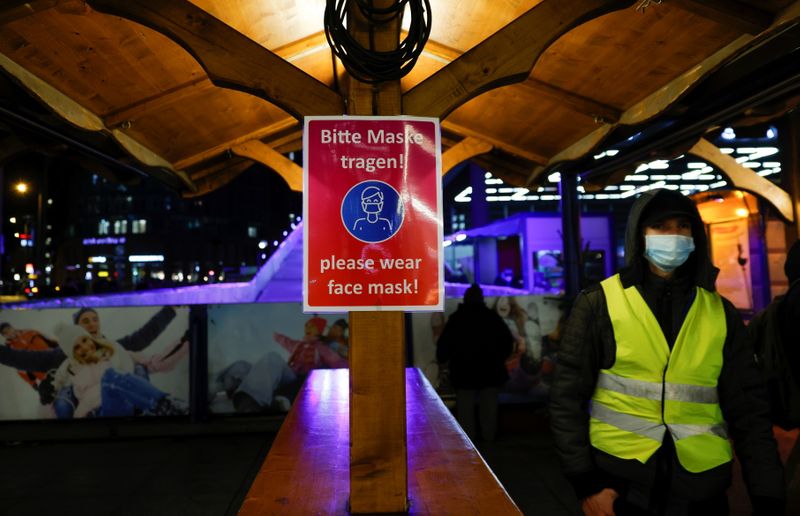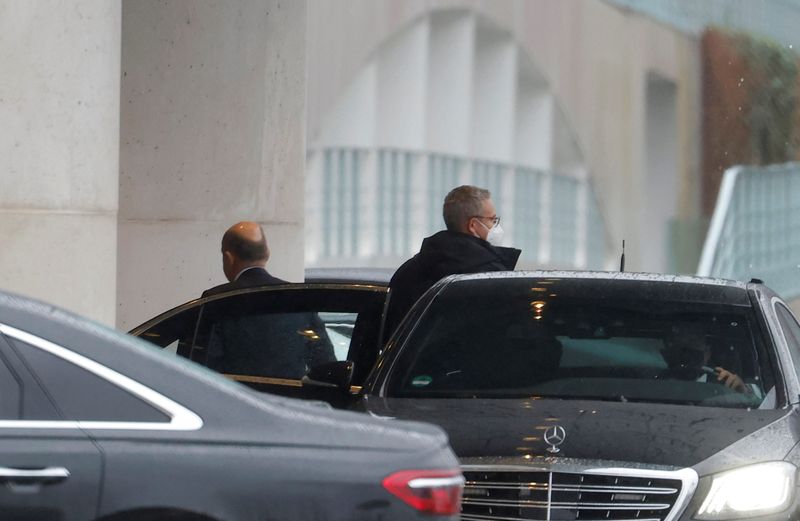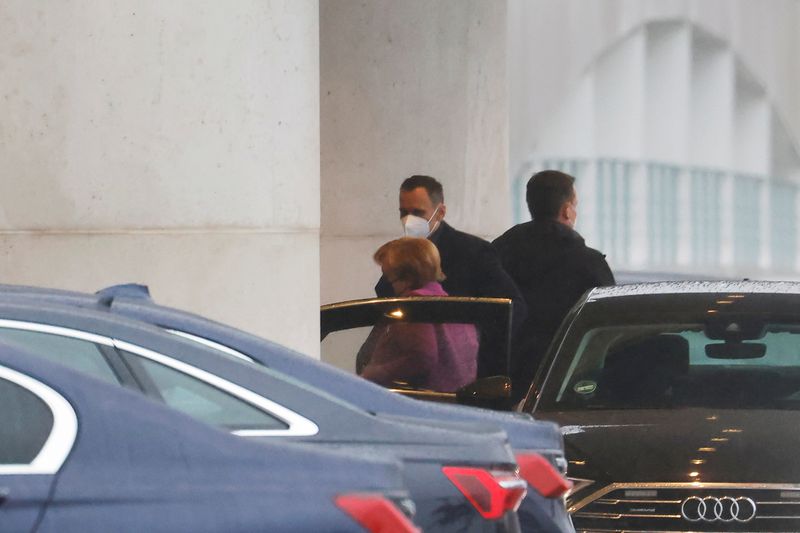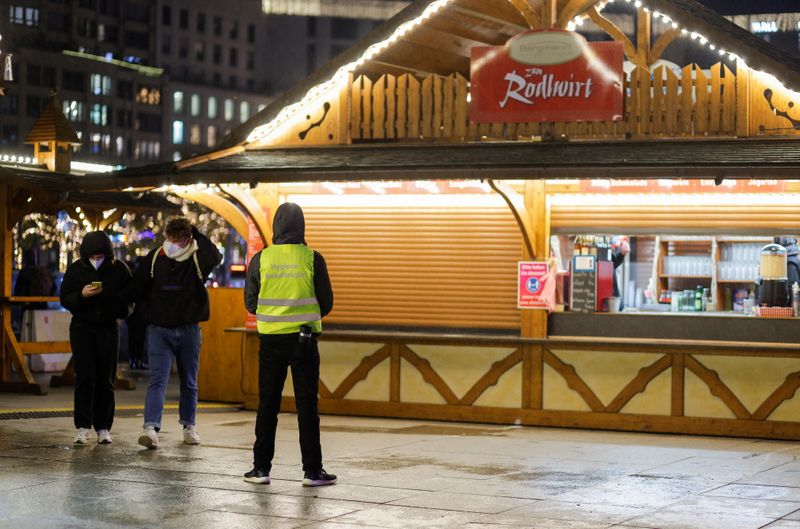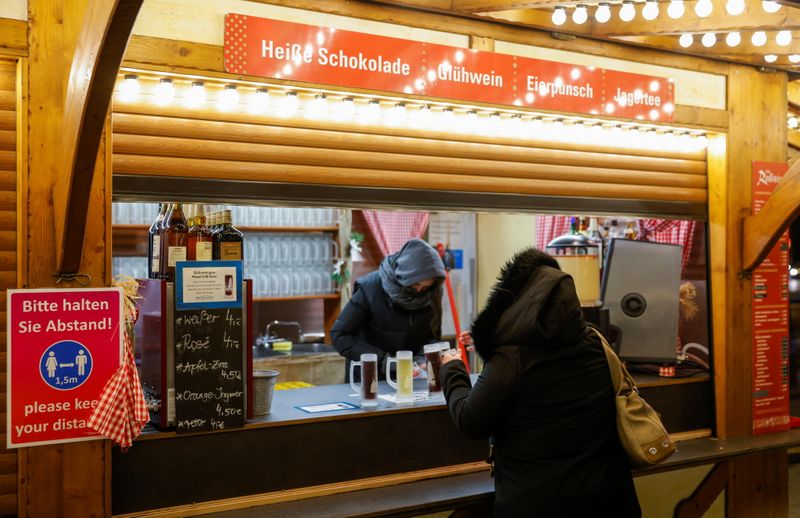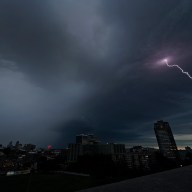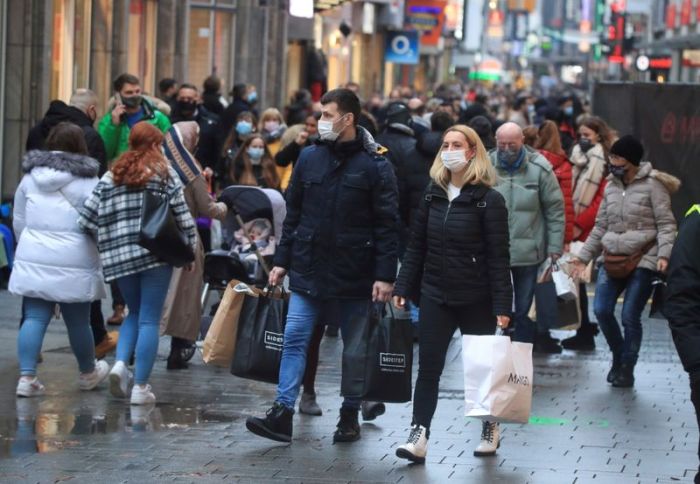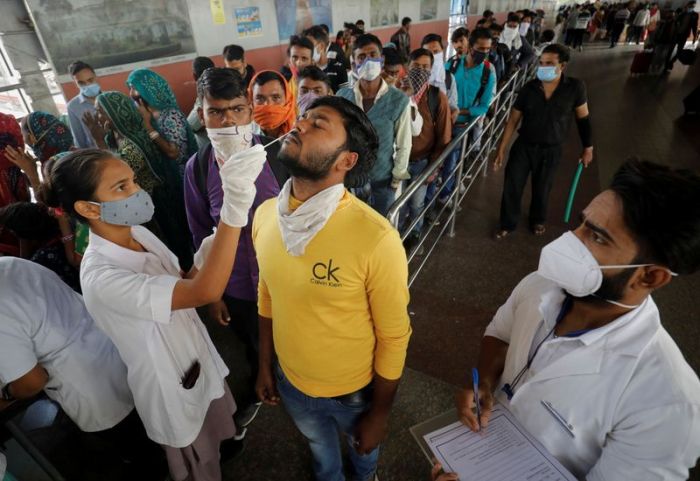BERLIN (Reuters) -Germany’s federal and regional governments agreed on Tuesday to take action to counter a fourth wave of COVID-19, including stepping up the vaccination campaign and restricting contact, especially for unvaccinated people.
Facing a surge in cases over the last few weeks and warnings from virologists that exponential growth rates would overload hospitals, outgoing Chancellor Angela Merkel held video talks with her successor, Olaf Scholz, and regional leaders.
“There is agreement that the fourth wave has led to an extremely serious, in some regions dramatic situation in our healthcare system to which federal and state governments will respond jointly and decisively,” said government spokesman Steffen Seibert.
Already criticised by scientists for acting too late, the leaders agreed to take decisions on Thursday on proposals, such as forcing customers to show proof of vaccination or recovery in shops and limiting numbers of people at big events.
The leaders will also decide on Thursday whether to ban soccer fans from top-flight Bundesliga matches, the premier of the eastern state of Saxony said.
Leaders will also decide soon on whether to make vaccinations compulsory, said Seibert.
Social Democrat Scholz, set to replace conservative Merkel as chancellor next week, said he would seek parliamentary approval for mandatory vaccinations.
“I will vote for it,” Scholz told Bild television, saying he wanted compulsory vaccinations from March. He also said a faster rollout of booster shots was needed as full protection was not guaranteed beyond six months.
Some 68.5% of Germany’s population of roughly 83 million have been fully vaccinated, lagging southern European countries like Portugal, Spain and France. Some 11.6% have had a booster.
Germany has already limited access for the unvaccinated to bars and restaurants but while politicians urge people to get a booster shot, logistical problems are slowing down the rollout as long queues form outside many vaccination centres.
“People are annoyed that it’s not going smoothly,” said Scholz who promised to step up the campaign before Christmas.
The COVID-19 incidence rate dipped slightly on Tuesday for the first time since early November. The Robert Koch Institute for infectious diseases reported 452.2 people per 100,000 were infected in the last week, from 452.4 on Monday.
However, the number of new cases edged up again from last week to 45,753 and another 388 deaths were recorded – the highest daily figure since early March. The overall death toll is 101,344.
Germany’s Constitutional Court ruled earlier that previous lockdown measures did not violate children’s rights to schooling or other constitutional freedoms, giving the government a freer hand in deciding measures.
(Reporting by Andreas Rinke, Paul Carrel, Emma Thomasson, Thomas Escritt and Madeline Chambers in Berlin, Bart Meijer in Amsterdam, Stephanie Nebehay in Geneva and Francois Murphy in Vienna, Writing by Madeline Chambers; Editing by Miranda Murray and Andrea Ricci)

